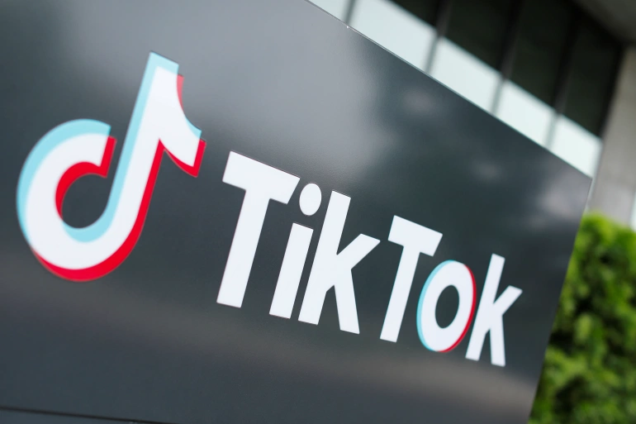TikTok has asked a judge in the United States to block a Trump administration order that would require Apple Inc and Alphabet Inc’s Google to remove the Chinese-owned short video-sharing app for new downloads from Sunday.
It is the latest twist in a high-stakes game between the world’s top two economies that has a wildly popular and politically sensitive piece of technology at its centre, just weeks before what could be a closely run US presidential election.
A federal judge in San Francisco on Saturday issued a preliminary injunction blocking a similar Department of Commerce order from taking effect on WeChat, another mobile app owned by a Chinese firm, Tencent Holdings.
The administration of US President Donald Trump has expressed serious concerns that the personal data of as many as 100 million Americans that use TikTok was being passed on to China’s Communist Party government.
It has been pushing the app’s Chinese owner, ByteDance, to sell TikTok to US companies. Trump signed an executive order on August 14 giving ByteDance 90 days to relinquish ownership of the app to US-owned firms.
On Saturday, the Commerce Department announced a one-week delay in the TikTok stop order, citing “recent positive developments” in talks over the fate of its US operations.
‘Political considerations’
TikTok said the restrictions “were not motivated by a genuine national security concern, but rather by political considerations relating to the upcoming general election”.
TikTok also said that if the order is not blocked “hundreds of millions of Americans who have not yet downloaded TikTok will be shut out of this large and diverse online community – six weeks before a national election”.
ByteDance, US retail giant Walmart and software maker Oracle said on Saturday they had reached an agreement that would allow TikTok to continue to operate in the US. Trump said he had blessed the deal.
However, the companies have issued conflicting statements over the terms of the preliminary agreement they reached with the White House, casting doubt over whether it will hold.
ByteDance said on Monday it will own 80 percent of TikTok Global, a newly created US company that will control most of the app’s operations worldwide. ByteDance added that TikTok Global will become its subsidiary.
Oracle and Walmart have agreed to take stakes in TikTok Global of 12.5 percent and 7.5 percent, respectively.
But Oracle and Walmart have said majority ownership of TikTok Global would be in American hands.
On Monday, Oracle said ByteDance’s ownership of TikTok would be distributed to ByteDance’s investors, and that the Beijing-based firm would have no stake in TikTok Global.
A ‘dirty and underhanded trick’
Chinese state-run media have denounced the proposed deal as “an American trap” and a “dirty and underhanded trick.”
The quick shift in sentiment shows the complications of concluding an agreement that is about much more than finding a proper valuation for an addictive video app that has enthralled teenagers around the world.
It also has big ramifications for how the world’s biggest economies handle security threats related to new technologies that will drive growth over the next few decades.
For China, the political stakes are similar to the marathon trade talks that ended with a phase-one deal in January. Any agreement that makes it look like the Trump administration forced China’s hand could hurt President Xi Jinping, who has repeatedly hailed the Communist Party’s emergence as a great power in contrast to the humiliations suffered under colonial powers centuries ago.
“Beijing basically doesn’t want to set a precedent where the US can be allowed to unilaterally flex in this way,” said Kendra Schaefer, head of digital research at the Trivium consultancy in Beijing. “Having some role to play in the decision balances things out a bit.”
In an opinion piece on Wednesday, the state-run China Daily wrote: “What the United States has done to TikTok is almost the same as a gangster forcing an unreasonable and unfair business deal on a legitimate company.”
Hu Xijin, the influential editor-in-chief of the Chinese Communist Party-run Global Times tweeted that Beijing likely would not approve the current agreement as it endangered China’s national security.
Meanwhile, ByteDance has applied for a licence in China in line with the country’s technology export requirements.
The application was submitted to Beijing’s municipal commerce bureau and the company is waiting for a decision, it said in a statement on its Toutiao account on Thursday.
It did not say whether the application was related to the continuing negotiations over its US operations.
China last month revised for the first time in 12 years a list of technologies that are banned or restricted for export, which experts said gave Beijing a say over any TikTok deal.
ByteDance has said that its deal with Oracle and Walmart needs approval from both the US and China.
Latest Stories
-
ECG Power Queens support Ho Female Prison
42 minutes -
Don’t appoint a new EC Chair; allow Jean Mensa to work – Prof. Stephen Adei to Mahama
1 hour -
Bayer Leverkusen’s Jeremie Frimpong arrives in Ghana for visit
2 hours -
‘It will be disastrous if Mahama removes the Chief Justice’ – Prof. Stephen Adei
2 hours -
Jean Mensa must step down as EC Chair – APC and Movement for Change assert
2 hours -
Akufo-Addo calls on police to refine strategies to avoid prolonged electoral unrest
2 hours -
Only NPP looting brigade unhappy about ORAL – Ablakwa
2 hours -
CSIR-SARI introduces integrated soil fertility management technology to boost maize production
2 hours -
Ghana’s indigenous agribusiness faces challenges impacting economic growth – Dr. Azinu
2 hours -
41-year-old man arrested over illegal power connection
2 hours -
65-year-old man plans to walk over 250-km Kumasi-Accra journey for Mahama’s swearing-in
2 hours -
Woman dies after being set on fire on NYC subway
4 hours -
Elon Musk’s curious fixation with Britain
4 hours -
EBID wins the Africa Sustainability Award
6 hours -
Expansion Drive: Takoradi Technical University increases faculties
10 hours

